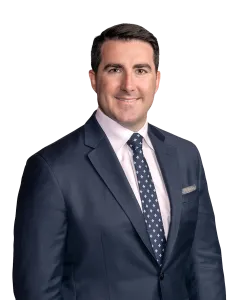Recent Interview With FCA Plaintiff Bar Attorneys Offers Key Insight into Trends in Anti-Kickback Litigation
Headlines that Matter for Companies and Executives in Regulated Industries
Recent Interview With FCA Plaintiff Bar Attorneys Offers Key Insight into Trends in Anti-Kickback Litigation
During a recent interview commemorating the 50th anniversary of the enactment of the Anti-Kickback Statute, two prominent members of the False Claims Act (FCA) Bar offered a series of key insights into the current state of Anti-Kickback Litigation.
Among other key observations, Tycko & Zavareei LLP partners Renée Brooker and Eva Gunasekera (both US Department of Justice (DOJ) alumnae prior to their time in private practice) described DOJ’s preference for cases brought by corporate insiders with specific knowledge of problematic conduct within a company. Similarly, when asked about how DOJ decides which relator cases to focus on and intervene in, Brooker specifically pointed to DOJ’s limited resources and posited that the agency is beginning to shift its focus to pandemic-related fraud, as well as cybersecurity fraud.
Additionally, on the topic of off-label promotion, Gunasekera described DOJ’s focus on pharmaceutical manufacturers offering kickbacks to physicians and other prescribers to speak about off-label drug or devices indications. Gunasekera also posited that kickbacks to promote off-label uses have been used to enable older products to compete with newer ones.
Read together, the interview indicates that companies (particularly those operating in the pharmaceutical and medical device spaces) should ensure that they have robust compliance and oversight programs in place to make sure they do not find themselves the subject of a relator’s complaint or subsequent DOJ investigation.
Law360’s coverage of the interview is available here.
Parties Continue Fight Over Bid to Have Sixth Circuit Rehear Circuit-Splitting FCA Case
The parties involved in a circuit-splitting FCA case are continuing their dispute to have the full Sixth Circuit rehear a prior three-judge panel opinion.
As background, whistleblowers Shannon and Douglas Martin filed a complaint in Michigan alleging that Oaklawn Hospital chose not to hire Dr. Shannon Martin because another eye doctor had promised the hospital lucrative referrals. The District Court initially dismissed the complaint, stating that it failed to establish a direct causal connection between the alleged kickbacks and health care hiring and billing practices.
On appeal, the Sixth Circuit’s three-judge panel affirmed the dismissal, reasoning that the FCA requires a direct connection between alleged kickbacks with health care billing practices, and that the referral scheme did not constitute remuneration under the FCA. The opinion brought the Sixth Circuit in line with the Eight Circuit and into conflict with the Third Circuit, which has previously held that while there must be a connection between a kickback and a subsequent reimbursement claim, that court stopped short of requiring proof that a kickback would not have occurred but for the remuneration.
Following the Sixth Circuit’s opinion, the whistleblowers petitioned the full court for an en banc rehearing, arguing that the panel’s restrictive definition of causation ignores the policy underlying the Anti-Kickback Statute. The defendants responded by arguing that the Sixth Circuit should not reconsider the case because the panel already correctly decided the case.
Regardless of how the Sixth Circuit rules, the circuit split remains, which may require the Supreme Court to clarify the appropriate causation standards. Stay tuned for future updates on this Circuit split.
Law360’s analysis is available here.
Illinois Federal Judge Largely Upholds Award in Eli Lilly False Claims Case
As previously reported, in August 2022, a federal jury in Illinois found that Eli Lilly, a drug manufacturer, intentionally underpaid rebates to Medicare programs by excluding retroactive drug prices from required metrics used to calculate drug rebates. Following trial, the jury ordered Eli Lilly to pay $61 million. Eli Lilly then filed a post-trial motion for judgment as a matter of law or for a new trial on numerous grounds, including that the jury awarded damages to five states covering periods that predated those states’ false claims’ statutes effective dates.
Although the court did shave $147,000 from the jury’s $61 million award as an improper award to the five states whose false claims statutes had not taken effect during the time period at issue in the case, District Judge Harry Leinenweber otherwise denied Eli Lilly’s motion and upheld the bulk of the award. If the relator rejects this remedy, the court may order a new trial on damages for just the five states whose false claims statutes were not effective: Colorado, Georgia, New Jersey, Oklahoma, and Rhode Island.
Eli Lilly has indicated that it will appeal the ruling once the court enters a final judgment.
Law360’s analysis is available here.
Tennessee Eye Center Agrees to Pay $17 Million to Settle Anti-Kickback Statute and False Claims Case
On May 1, 2023, a Tennessee eye center agreed to pay $17 million to settle an Anti-Kickback Statute and FCA case. The original complaint was filed in 2017 by Gary Odom, the executive director of the Tennessee Association of Optometric Physicians, and its past president, Dr. Ross Lumpkin. As alleged, Southeast Eye Specialists PLLC (SEES), its co-founders Daryl Mann and John Bierly, and two affiliates were accused of offering optometrists free meals, golf outings, and other pricey gifts in exchange for patient referrals for cataract surgery. Although DOJ initially declined to intervene when the case was first filed in 2019, it subsequently reversed course and intervened in February 2020.
As detailed in the operative complaint filed in November 2021, SEES offered various types of remuneration to numerous optometrists in exchange for patient referrals. For example, the relators accused SEES of offering continuing education classes for optometrists, free meals, and drinks for the optometrists and to their staffs, golf outings and trips to other various sporting events.
Additionally, several optometrists were also placed on so-called advisor boards, which the relators allege were merely a pretext to offer providers lavish meals. The relators further alleged that SEES also provided optometrists with financial inducements through a co-management model, under which SEES and the referring physicians would split the surgery fees for surgeries rendered to patients referred to SEES by the optometrists. Finally, the relators also alleged that SEES induced referrals by paying optometrists in cash to induce cataract patients to buy expensive lenses not covered by Medicare or Tennessee Medicaid.
The settlement resolves these allegations, and the relators will receive $4.76 million of the $17 million award.
Contacts
- Related Practices




